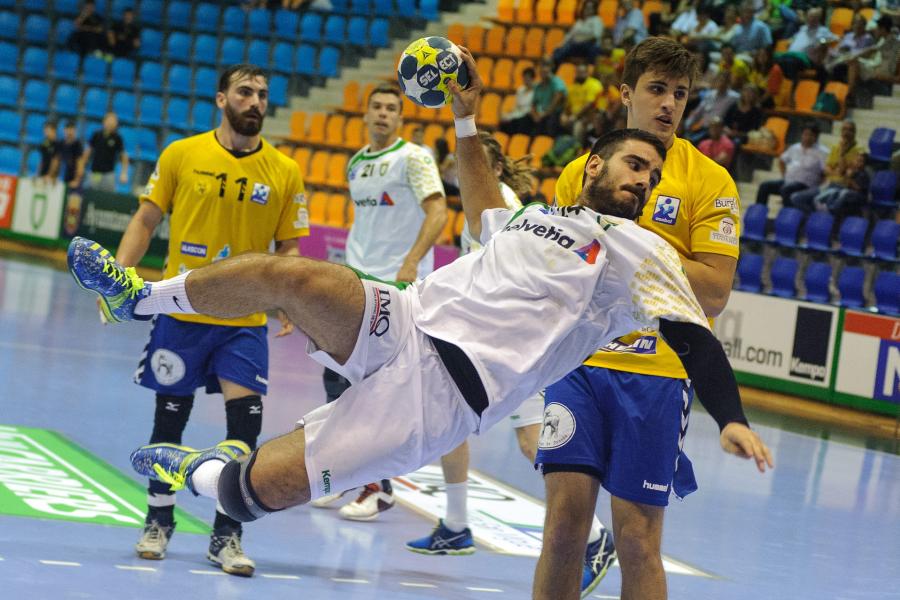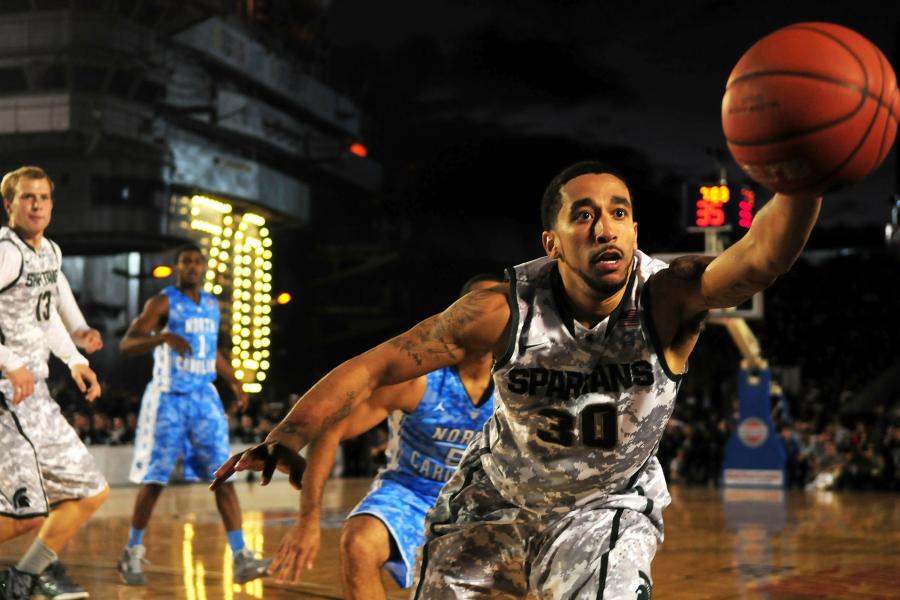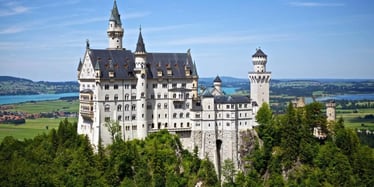German Sport

Contents
Sport is a popular pastime in Germany, both in terms of watching it live and on TV and actual playing and participation. In fact, forty million people, that’s almost half of the population, are members of a sporting club or organization.
Football (soccer), known in Germany as Fußball, is hugely popular in all parts of the country and can be considered a national sport. A testament to this is the sheer quality of the teams that play in the Bundesliga, the top German professional football league, as well as the national team who won the European Football Championship in 1996 and the World Cup in 2014. Motorsports, thanks to the country’s heritage in the car manufacturing industry, is also popular in Germany, as are ice hockey, handball, and skiing.
Popular Sports in Germany
What is the national sport of Germany?
With so many popular sports in the country, it’s hard to pin down a ‘national sport’. However, by far the most popular sport in Germany in terms of both participation and spectatorship is football. German football is governed by the German Football Association and, above that, the UEFA, which means the rules of the game are identical to those in Britain and the rest of Europe.
Children tend to start playing football at a young age, and it is enjoyed by people throughout their lives. Women’s football is also growing in Germany. Both the top league (the Bundesliga) and the National Team are full of global football superstars.
Local football team
It's usually easy to find a local football team to join, or at least train with, when you first move to a German town or city, and this can actually be a fun, social, and natural way to start improving your German skills while getting some exercise and connecting with your local community. Check the Craigslist pages for your city or message boards ("Pinnwände") for your neighborhood.
Soccer/Football
Football, or soccer, is known as Fußball in German. The top German league, the Bundesliga sees some of the world’s top-flight teams fight it out such as Borussia Dortmund and Bayern Munich.
The German national side is also one of the best in the world, having won the World Cup in 2014 and boasting players such as Thomas Müller, Manuel Neuer, Mesut Özil and Philip Lahm. Other top players include Bayern Munich’s Robert Lewandowski and Arjen Robben.
_0.jpg)
Is soccer popular in Germany?
Football is undoubtedly the most popular spectator sport in Germany. Tens of thousands of individuals attend matches every week. Tickets to Bundesliga and national games aren’t that easy to come by, but they are significantly cheaper than, for example, tickets to the English Premier League.
Football is also popular to play and is enjoyed by youngsters at school as well as through thousands of mini-leagues. The most popular German sports teams are indeed the professional football teams that include Bayern München and Borussia Dortmund.
Motorsport/Formula 1
Motor sports, notably Formula 1, is another hugely popular spectator sport in Germany. This isn’t surprising given that many of the top Formula 1 car manufacturing teams are comprised of the producers of the best German sports cars including BMW, Porsche and Mercedes. This is in addition to some of the world’s most celebrated drivers such as Michael Schumacher and Sebastian Vettel.
The German Grand Prix takes place each year at either Hockenheimring or Nürburgring as part of the Formula 1 World Series. Sometimes, the European Grand Prix takes place in Germany too at one of these race tracks. A variety of motorsports events are televised in Germany including Formula 1, Formula 2, Formula 3 and Le Mans.
.jpg)
Handball
Handball originated in Northern Europe, and as a result, it is popular throughout Germany as well as with its Baltic neighbors. For many, Handball is Germany’s ‘second sport’ after football. Unlike football or ice hockey, however, the biggest attendances at matches actually occur in the smaller cities or towns, where it replaces these more famous sports as the primary spectator sport.
The German Handball League is one of the best in the world, and if you do go to a match, try to catch one of the top teams such as THW Kiel or Rhein-Neckar Löwen. The national team has also had much success and is worth trying to catch if you can. Germany’s most celebrated handball player of all time remains to be Stefan Kretzschmar.

Basketball
Basketball is fairly popular in Germany - mainly owing to two German players who have made big careers in the US NBA: Detlef Schrempf and Dirk Nowitzki. German league games are not the highest quality in the world, or even in Europe, but the atmosphere at these games is electric, and it’s fairly easy to get hold of tickets.
The aforementioned Dirk Nowitzki is by far the most famous basketball player from Germany. His acclaimed professional career began back in 1998, when he was signed for the Dallas Mavericks. His nickname is the German Wunderkind.

Skiing
Skiing in Germany is much more of a participation sport than one that locals choose to watch. With the Alps to the south of the country, access to excellent skiing is easy from Germany. Popular resorts are found close to the biggest German mountain, die Zugspitze. Also, trips into Austria, Switzerland, and Italy are all easy from certain parts of Germany.
Despite being home to some of the Alps, there hasn’t been very many skiing superstars to actually come from Germany. The biggest name, however, is Markus Wasmeiere, who won two gold medals at the 1994 Olympics in Lillehammer.
.jpg)
Tennis
Tennis has always been part of the national psyche in Germany, especially in the 1990s when Boris Becker and Steffi Graf were dominating the world stage. The most significant tennis tournament is the German Open Hamburg which is broadcast on television.
Big tennis events from around the world are also broadcast in Germany. Interest in tennis as a participation sport remains high, and residents in Germany will find a local tennis club and tennis facilities in most towns and cities.
.jpg)
Cycling
Cycling in Germany is popular both in terms of watching major competitions and also participating in it as a leisure pastime. However, cycling as a spectator sport is nothing like as popular now as it was from the 1970s to the 1990s. There are no major German cycling events that can compete with the likes of the Tour de France, but for those living in the West of Germany, some segments of the Tour De France along the French eastern border are easily accessible from Germany, and some years, the tour actually starts in Germany.
As a leisure pastime, cycling is popular in Germany, especially as a means to explore some of the country’s beautiful landscapes. There are numerous dedicated cycle trails in Germany including the Baltic Coast Cycle Trail and the Elbe Cycle Route. In cities such as Berlin, cycling is a popular way to avoid the congestion on the roads as well as to keep fit.
.jpg)
Boxing
Germany hosts a number of big boxing fights, which are popular events that often sell out stadiums. The nation is seen as the ‘Vegas of Europe’ when it comes to boxing. When big fights are broadcast on TV, they are displayed on large screens, and marquees go up with parties held all over the country. Communities and groups come together to watch matches including ones that are taking place in the US and elsewhere in the world.
Boxing enjoyed a huge resurgence in Germany from 1990 onwards thanks to big names such as Henry Maske and Max Schmeling. The people truly responsible for its popularity, however, are the Klitschko brothers, who despite being Ukrainian by birth, made their careers, and for a while their homes, in Germany. A big Klitschko fight is always a major event in Germany.
.jpg)
Ice Hockey
Ice Hockey is a popular spectator sport in Germany. Many major cities and towns boast established ice hockey teams that play in the Deutsche Eishockey Liga, the highest league in the country. If you can, it’s worth getting tickets to go and see a match as ice hockey games in Germany are enjoyed with much passion from the stands. Getting hold of tickets is usually quite easy, even for the top teams such as Eisbären Berlin and EHC München.
The national team rank within the top ten sides in the world. Without a doubt, the most famous name to come out of German Ice Hockey is Uwe Krupp, a player who had Stanley Cup success with the Colorado Avalanche team in the US before becoming the manager of the German national ice hockey team from 2005–2011.
.jpg)
Golf
Golf in Germany, as in much of the world, is more popular as a participation sport than a spectator sport. Golf in Germany is enjoyed by less than 1% of the population, the majority of which play at private member clubs where strict dress and conduct codes apply.
Some clubs offer a GreenFee option, which allows visitors to pay to use the facilities without having membership. Golf isn’t broadcast on German TV, although some top German golfers have made it onto the world stage, including Martin Kaymer, who was the world’s best golfer in 2011.
.jpg)
What is Germany’s favorite sport?
As we’ve seen, in terms of the numbers that go and watch, football, followed by handball and ice hockey, are the most favorite sports in Germany. Boxing also gathers huge crowds.
What is the German sports award called?
The most important award for sports in the country is the German Sports Personality of the Year. The award was founded in 1947 in West Germany, but became an award for all German sports personalities after reunification, merging with the East German Best Sportsmen and Best Sportswomen of the Year Awards. Past winners include motorsports star Sebastian Vettel, triathlete Patrick Lange, tennis player Angelique Kerber, biathlete Laura Dahlmeier, and skier Johannes Rydzek.
What sports were invented in Germany?
Handball was partially invented in Germany, where it was called Torball initially, but it emerged in a number of other countries too. Grass skiing, underwater rugby, and ice stock are some of the few, and relatively unknown, sports that were truly invented in Germany.
Ice stock has been enjoyed in the Netherlands and Germany for centuries and is one of the few truly traditional German sports. It held a short foray on the Winter Olympics stage as a demonstration, but it was never taken on as an official sport.
What is Germany good at in the Olympics?
In the Summer Olympics, Germany has won numerous gold medals for sports such as canoeing, equestrians, athletics, and rowing as well as cycling, swimming, and gymnastics. In the Winter Olympics, biathlon, luge, speed skating, and bobsleigh have all seen Germany win a number of Gold Medals.
This might also be of interest to you

German Holidays and Celebrations
Germany enjoys a number of national and regional public holidays and other festivities that take place throughout the year. Those moving to Germany...

Funny German Words
Despite stereotypes of clipped speech and clinical precision, German is an expressive, clever, and often very amusing language. Its dictionary is...

German Art
German artists have always been integral to the story of European art, notably in the movements of Expressionism and Modern Art thanks to the Blue...

German Architecture
Germany is home to a fascinating array of architectural styles, with city landmark structures, ‘Disney’ castles, and rural historic homes....

German Literature
German literature is rich in beautifully crafted stories, especially from the eras of Sturm und Drang, Romanticism, and Realism. Certain German books...

German Sport
Sport is a popular pastime in Germany, both in terms of watching it live and on TV and actual playing and participation. In fact, forty million...

Religions in Germany
Germany is an intercultural and multi-religious country. It's important to understand that apart from main Christian religions (Protestantism and...
